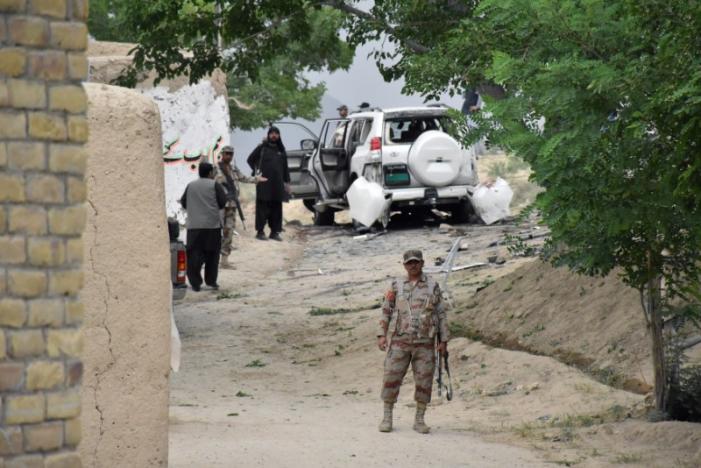At least 25 people were killed when a powerful blast rocked Pakistan’s Balochistan on Friday in what officials said was an attack against one of the country’s top senators.
The ISIS extremist group later claimed responsibility for the bombing. The group’s Amaq news agency said a bomber wearing an explosive vest was responsible for the attack.
More than 30 people, including some policemen, were also wounded in the attack in the restive southwestern province.
The blast in Mastung district, roughly an hour east of provincial capital Quetta, struck a vehicle carrying the deputy chairman of Pakistan’s upper house Maulana Abdul Ghafoor Haideri, he told reporters.
“I am alive, Allah has saved my life, it was a sudden blast, broken pieces of the windscreen hit me, I am injured but safe. The driver and other people sitting next to me were badly injured,” Haideri said on private TV channel SAMAA.
Pakistan’s Prime Minister Nawaz Sharif has condemned the bombing attack on Haideri, saying in a statement that he was praying for his swift recovery.
Sharif also requested authorities ensure the best medical care for those wounded in the attack.
Television footage showed vehicles twisted by the blast as security forces cordoned off the site.
“It is not yet clear whether it was a planted bomb or a suicide attack,” said police official Safar Khan added.
Haideri is a top official of Jamiat Ulema-e-Islam Fazl (JUI-F), one of the country’s most powerful religious political parties.
JUI-F has been targeted by the Pakistani Taliban in the past — even though the party leaders have acted as negotiators between the militants and Pakistan government in the past.
Pakistan has been battling militant and nationalist insurgencies in mineral-rich Balochistan since 2004, with hundreds of soldiers and militants killed in the fighting.
Bordering Iran and Afghanistan, it is the largest of Pakistan’s four provinces, but its roughly seven million inhabitants have long complained they do not receive a fair share of its gas and mineral wealth.
A greater push towards peace and development by Pakistani authorities has reduced the violence considerably in recent years.
The push includes starting work on a massive Chinese infrastructure project — the China-Pakistan Economic Corridor — which gives Beijing a route to the Arabian Sea through Balochistan’s deep sea port of Gwadar.
